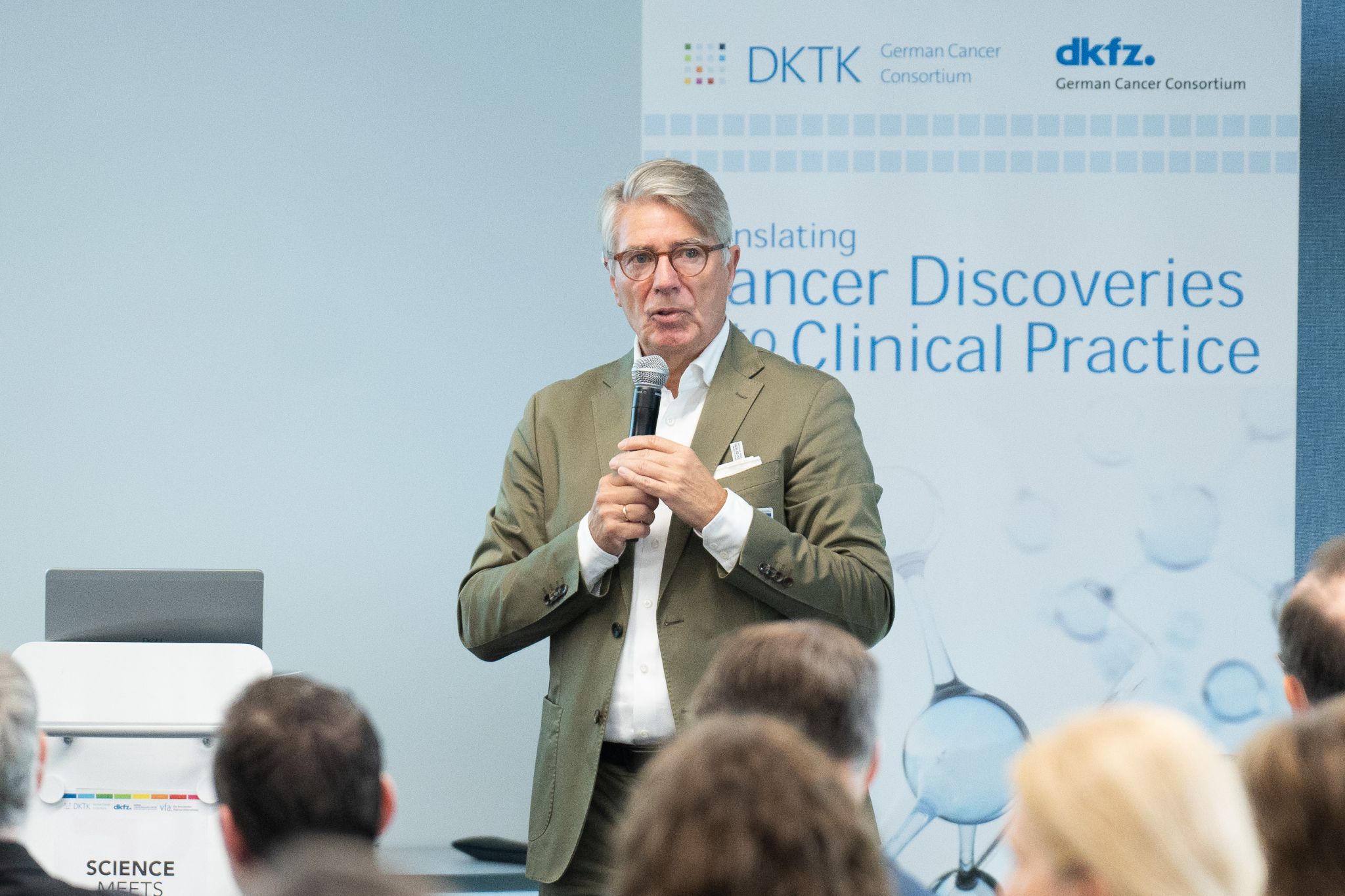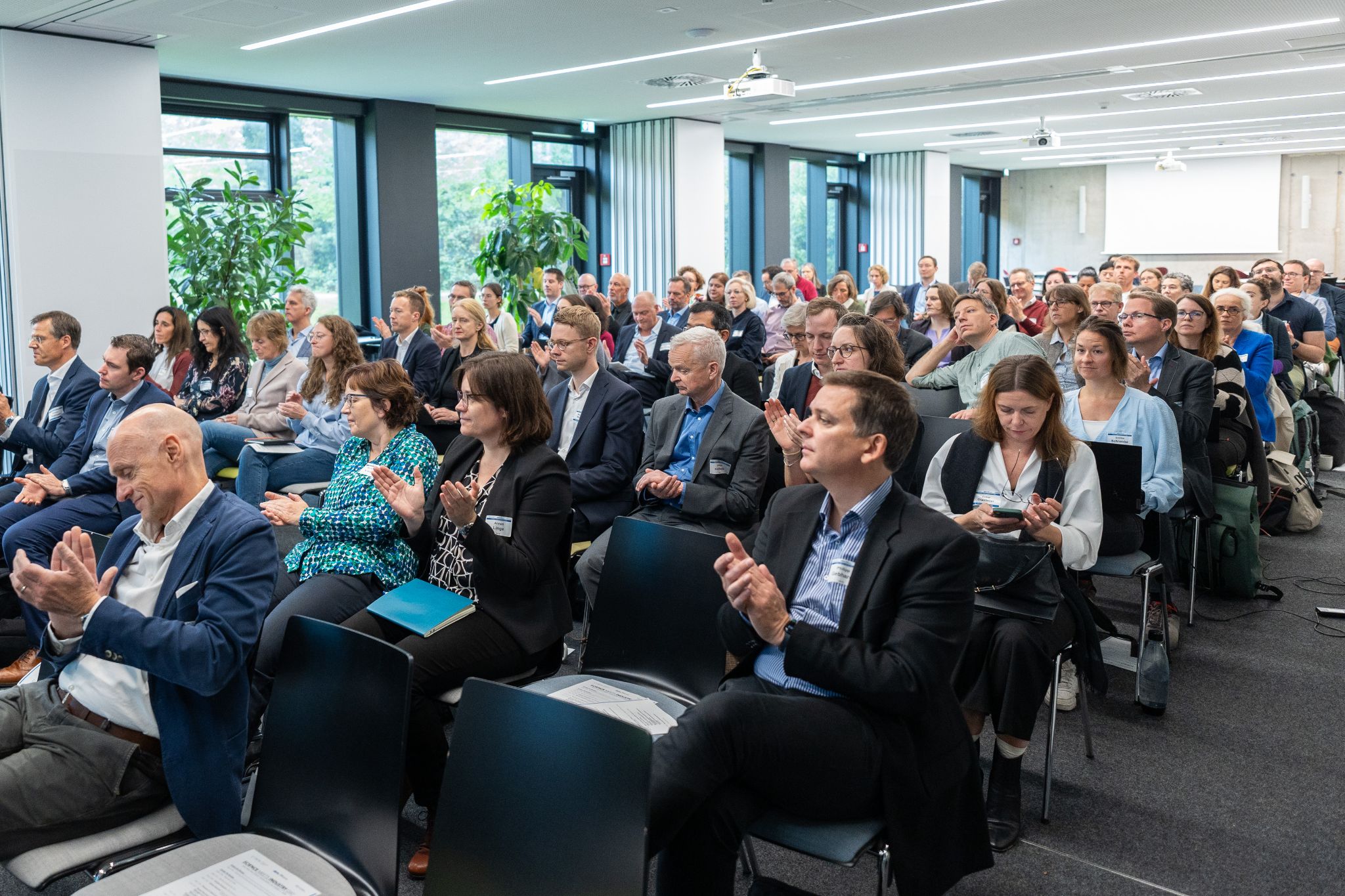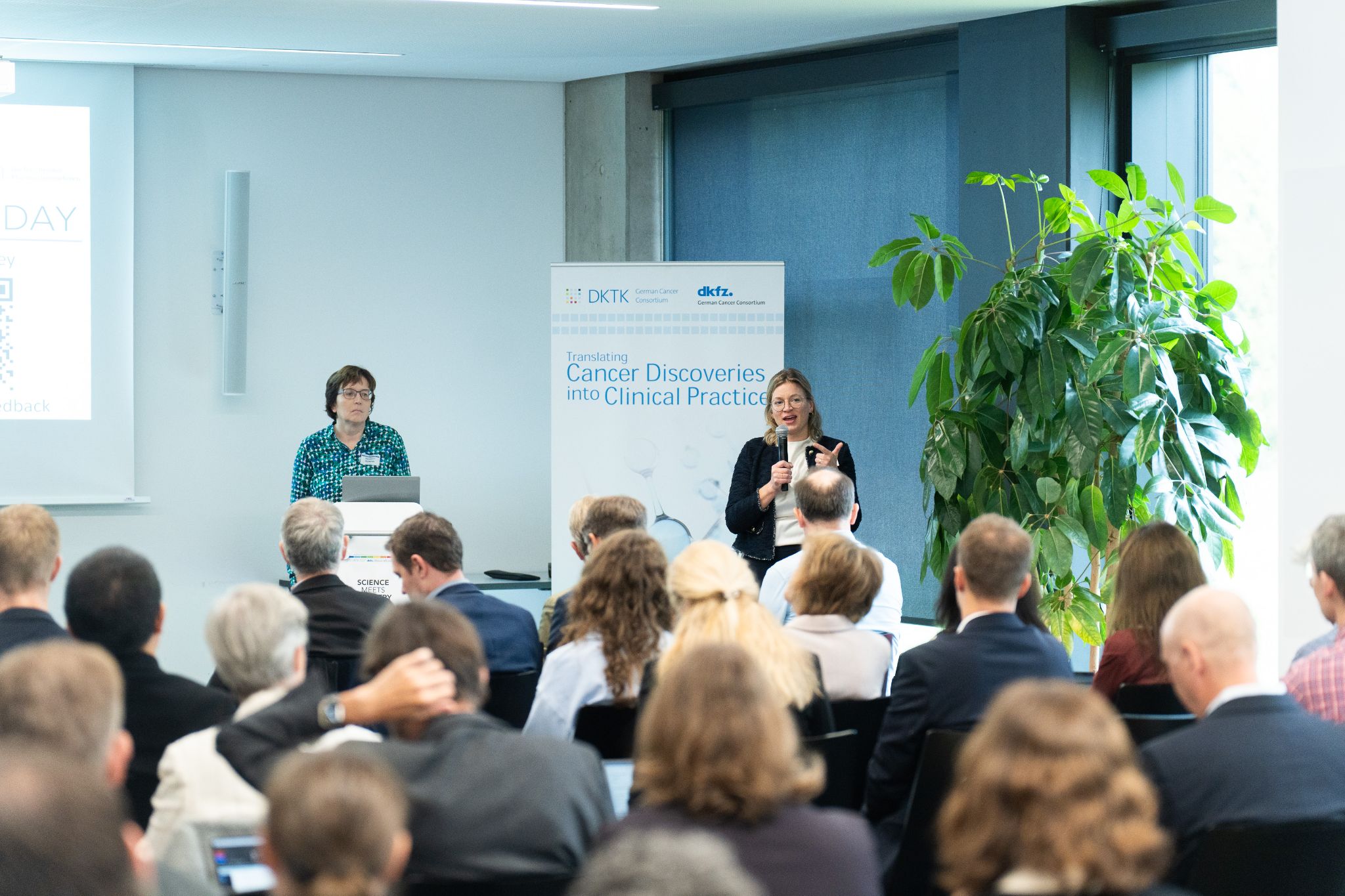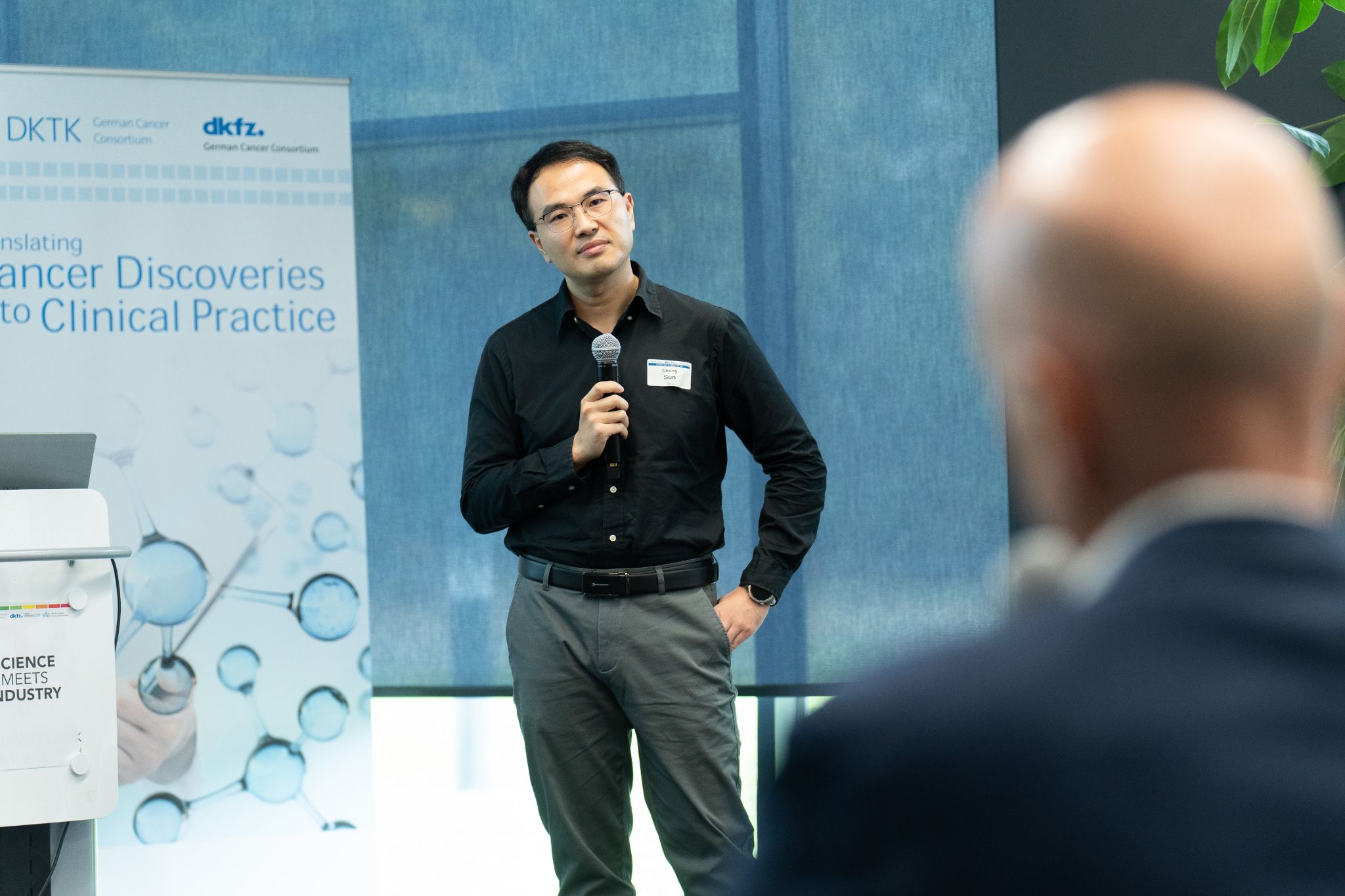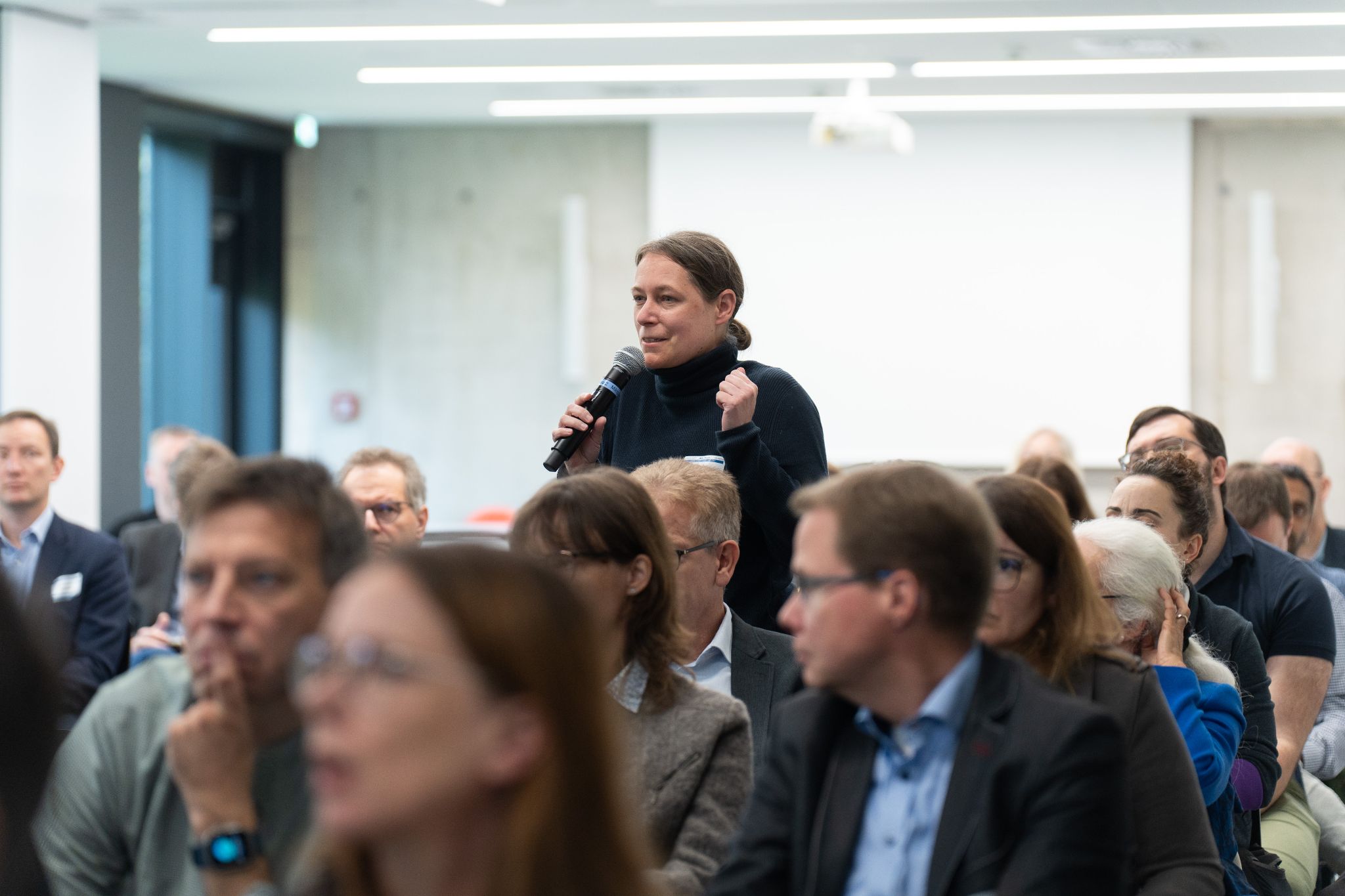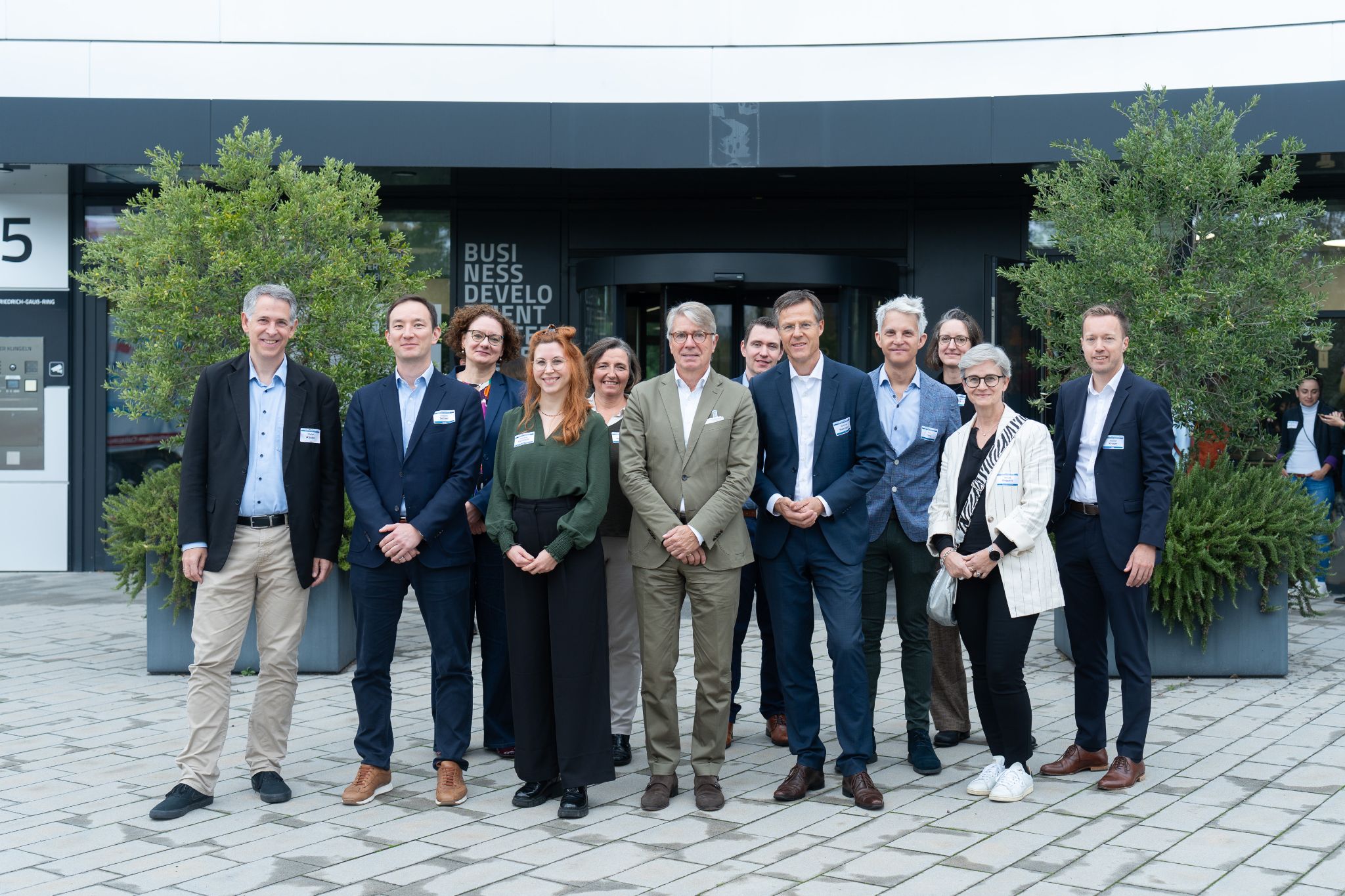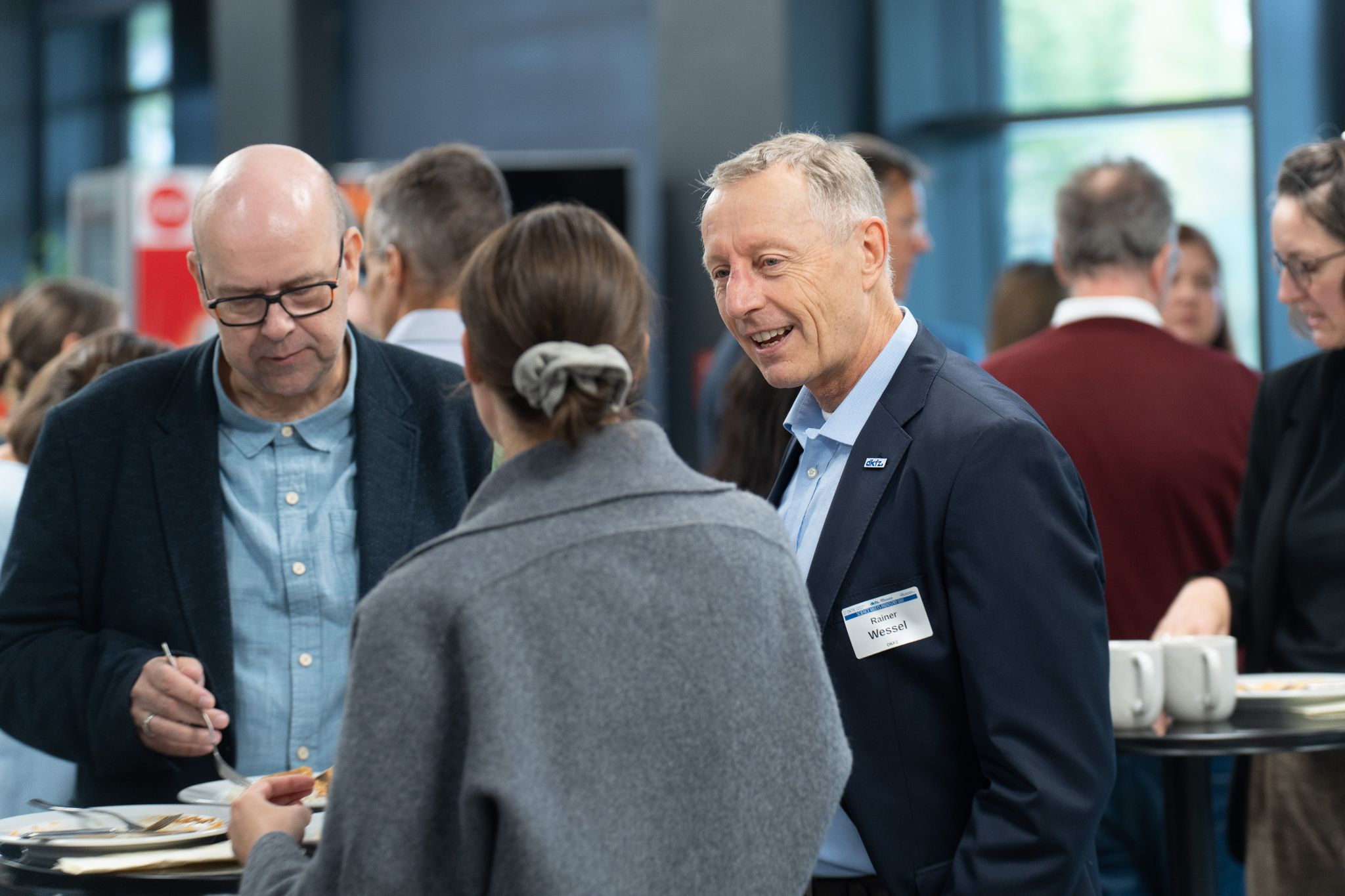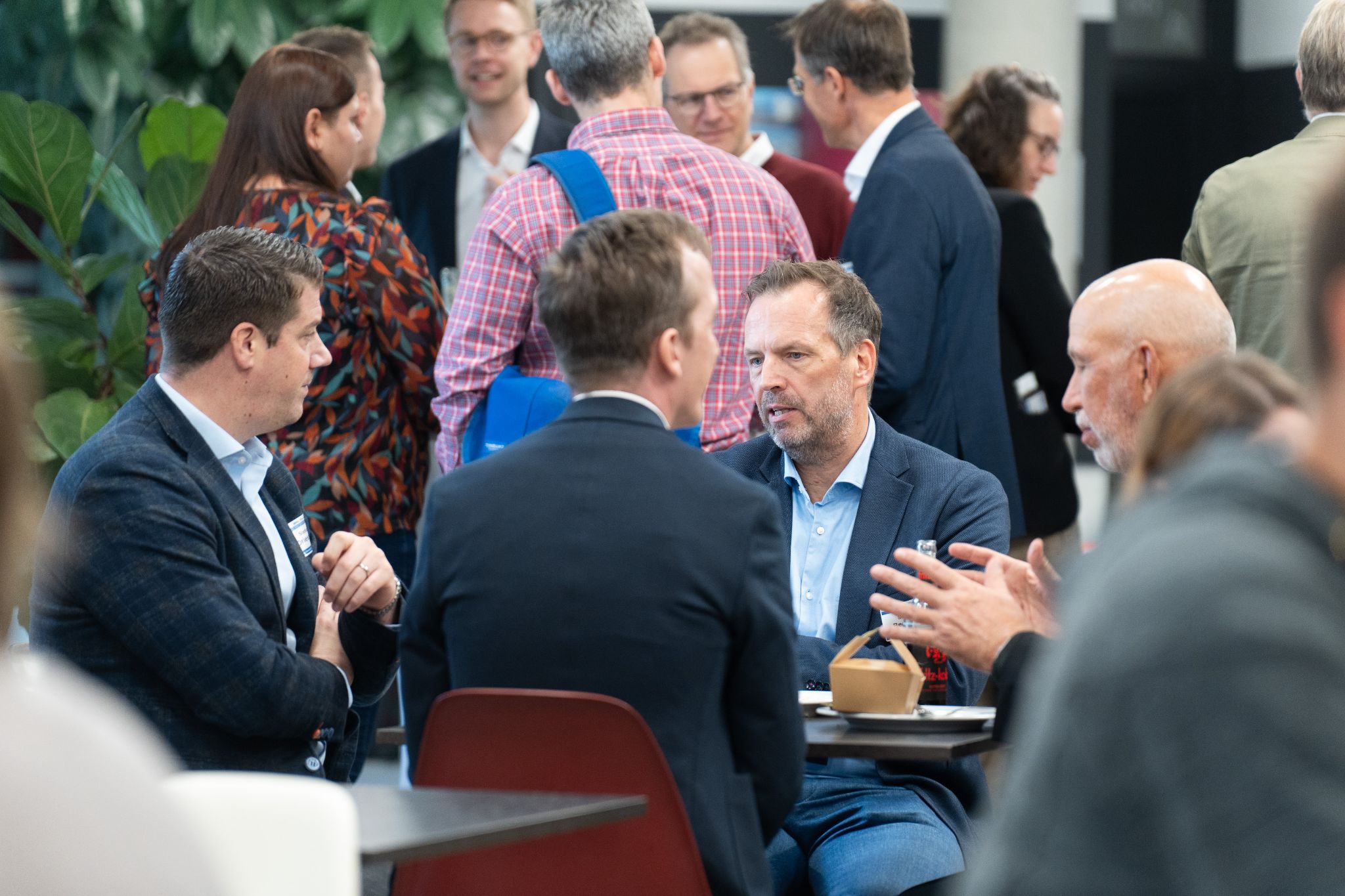10/10/2025
Print PageScience meets Industry Day – Building Bridges between Academia and Industry in Cancer Research
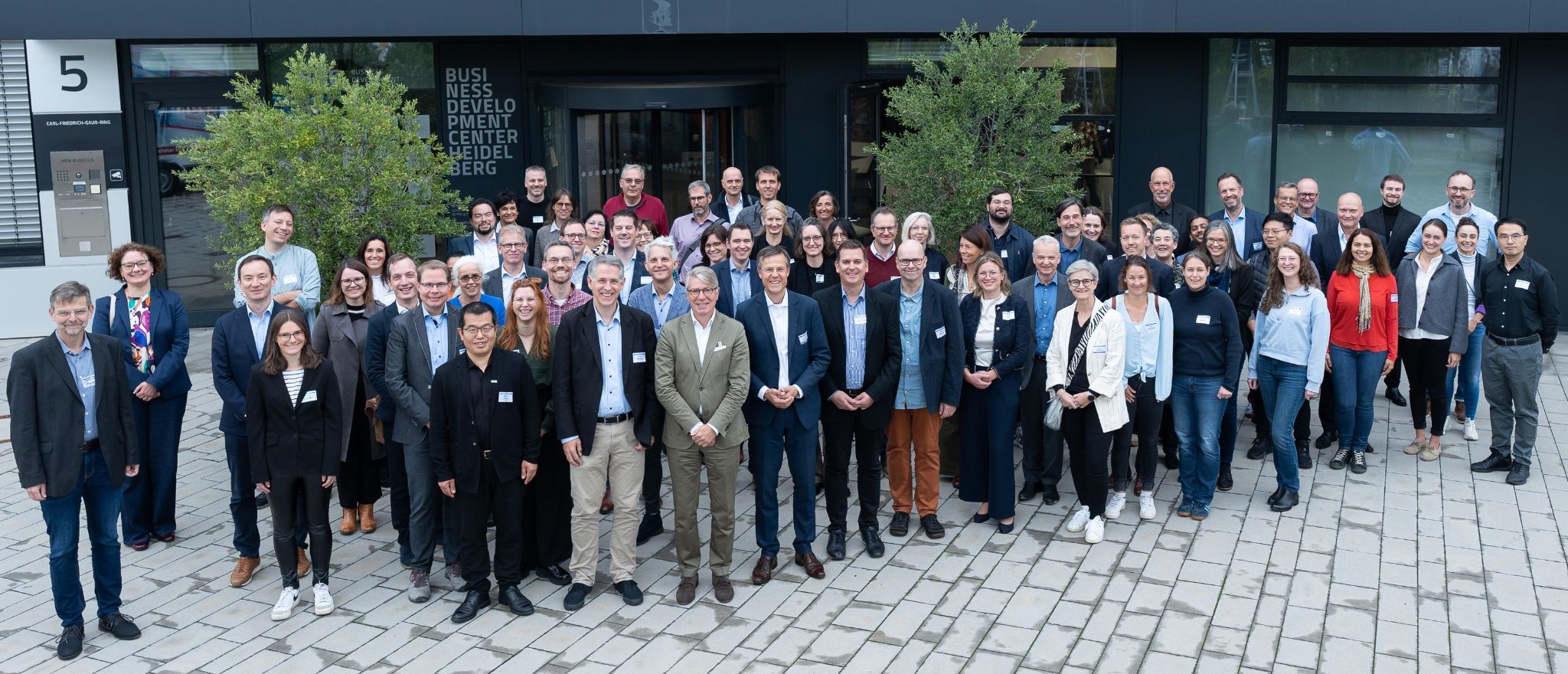
The day began with a welcome from Prof. Stefan Pfister, Director of the Hopp Children's Cancer Center Heidelberg (KiTZ), designated DKTK Spokesperson and Head of the Division of Pediatric Neurooncology at DKFZ. Besides scientists from the DKFZ and all DKTK partner sites, representatives from various pharmaceutical and biotech companies, who introduced themselves at the beginning, took part in the event. In his opening remarks, Stefan Pfister emphasized the importance of joint efforts between academia and industry to accelerate translation from bench to bedside. He encouraged participants to view the meeting as an “excellent starting point for new translational partnerships to emerge” and encouraged feedback to shape future editions.
Academic and Industry Perspectives: Aligning Missions
Stefan Pfister explained in his introductory presentation the structural landscape of academic cancer research in Germany, including the CCC network, the DKTK, and the National Center for Tumor Diseases (NCT). He addressed the challenges of “two valleys of death” in clinical and translational research and called for rethinking academic success metrics beyond publications. “To bridge the gaps to patient benefit, we must rethink incentives and KPIs in academia,” he noted, emphasizing the need to optimize limited resources through joint projects and platforms, for example.
Han Steutel, President of the vfa and member of the DKTK Scientific Advisory Board, spoke about the industry’s perspective, underlining the vital role of basic research and the untapped potential of closer academic–industry ties. “We need to synergize our efforts and to intensify the collaboration between science and industry in Germany,” he said. “It is important to bring things together at an earlier stage and to improve existing strengths.”
A Successful Public-Private Collaboration in Practice
Dr. Eva-Maria Rief presented the Innovative Therapies for Children with Cancer Paediatric Preclinical Proof-of-concept Platform (ITCC-P4), a model public-private partnership to improve pediatric oncology drug development. Operating under German law, the ITCC-P4 platform has already processed 73 collaboration requests − mainly from industry and primarily from the US − and is recognized globally as a trusted collaborator in pediatric cancer research, emphasizing that a shared vision, transparency, and trust were essential to making these partnerships a success.
Showcasing Innovation: Research Pitch Sessions
Throughout two research pitch sessions, scientists from DKFZ and DKTK presented seven innovative translational projects, ranging from AI-driven organoid modeling and phosphoproteomic diagnostics to advanced immunotherapy strategies:
- AIPTO TechBio: Transforming brain cancer R&D with AI-powered next-generation organoids platform (Dr. Haikun Liu, DKFZ)
- PhosDx - Phosphoproteomics for routine cancer diagnostics (Dr. Annika Schneider, TUM, DKTK)
- A companion biologic that turns resistance into response - removing an overlooked but common obstacle for today’s immunotherapies (Dr. Chong Sun, DKFZ)
- TcellTech: Enabling end-to-end T-cell therapy solutions with plug-in technologies (Dr. Khwab Sanghvi, DKFZ)
- Heating up cold tumors to improve immunotherapies in solid tumors (Simon Krost, DKFZ/KITZ)
- Boost-CAR: Enhancing CAR T-Cell Therapy through Metabolic CAR-T Engineering and Tumor Microenvironment Reprogramming (Prof. Sascha Dietrich, UKD, DKTK)
- ReachTX: Making Cancer Drug Discovery Predictable using AI and Organoids (Dr. Florian Heigwer, DKFZ)
Innovation and Transfer at DKFZ
Dr. Rainer Wessel and Dr. Holger Hess-Stumpp offered insights into DKFZ’s Innovation Management strategy, including DKFZ’ activities in terms of drug discovery. They underscored the importance of early-stage spin-offs, the need for sufficient venture funding, risk-taking, and strong partnerships with biotech and pharma − highlighting examples of successful collaborations with Bayer and Beiersdorf and spin-off generation. They pointed out that many drugs are invented by academia, but they need collaboration with industry partners to reach patients.
Networking and Next Steps
During the discussions following the presentations, and especially during the networking times, participants engaged in conversations about the wide range of topics and project ideas presented. In their closing remarks, Stefan Pfister and Han Steutel reiterated their shared vision: to establish sustained collaboration and accelerate translation in oncology. “We have everything we need in Germany,” Han Steutel concluded. “Now we must make it work − together!”
